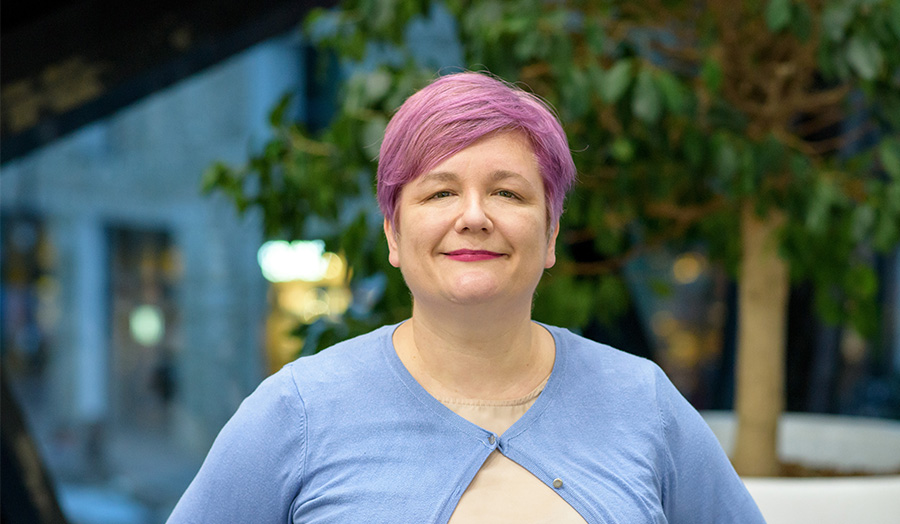Woman and Child Abuse MA student Angela Airlie gives us some insight into her life as a student, and how her course has helped shape her career.
Can you tell us a bit about your educational background, and what led you to choose London and London Met?
After dropping out of university the first time round, I returned to higher education in my thirties, when I studied a degree in Health and Social Care with the Open University. I achieved a BSc (Hons) First Class. After a few years I started to get the bug to study again and was looking around for a master's degree that would complement my work in the domestic violence sector. I was working with a couple of women who had studied the master's in Woman and Child Abuse at London Met, who really raved about it. The course really appealed with me, since it spoke so closely to my work, so I signed up.
Did you start your course in January?
Yes – I started in January because I felt it fit better with my life. I signed up in June 2015 and started in January 2016 – having this extra time before I started gave me the chance to negotiate with my employer about getting some study leave and to plan how to fit this high-level academic study into my life.
What makes the Woman and Child Abuse MA a valuable degree?
It is great, because not only does it give an invaluable insight into the theory behind woman and child abuse, but it is very practical too. It is also amazing being able to network with lots of like-minded women and to get insight from some of the doyennes of the field, especially Liz Kelly, whose name is a legend in the world of domestic and sexual violence.
Have you had any work or industry experience as part of the degree?
I was already working as a domestic violence practitioner, but since undertaking the master's I have been promoted to a senior management role – I have no doubt that my studies have been instrumental in this promotion.
What are the lecturers and facilities like?
All of the lecturers were absolutely fantastic – Sukhwant Dhaliwal has been so good as a dissertation supervisor – encouraging and pragmatic at the same time. It has been a privilege to hear from so many visiting lecturers too – it has given a very broad perspective on the work that researchers in the field are doing.
Can you tell us what your career plans are when you graduate?
I intend to remain working in the domestic violence and violence against women and girls sector. I would like to continue to move up the career ladder and aspire to run a domestic violence organisation either in the UK or internationally one day.
Any highlights?
I stood as a Parliamentary Candidate for Labour in 2017, at the same time as I was studying my two elective modules – and got the best marks of the whole course! Sadly, I wasn’t elected though! I feel very honoured to have been asked to present a seminar at the University with Nicola Sharp-Jeffs – I will be talking about the research that I did for my dissertation, which my employer, Refuge, national domestic violence charity, is also making into a policy document.
What do you do outside lectures when you have free time?
I am very involved in politics; I also enjoy reading and spending time with my family and my dogs.
Do you have any advice for new students?
When you read, make notes, it will be invaluable when it comes to assignments – you can colour-code your notes with highlighters according to what part of your assessment they are pertinent too.
Are you a mature student? Can you tell us more about how you've found things here?
I am a mature student. I have enjoyed being part of the diverse community that London Met offers. There are students here from all walks of life and it has been a privilege getting to know some of them.

